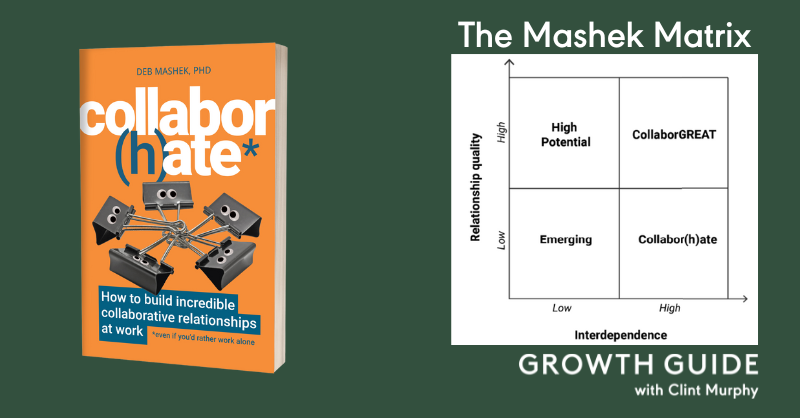Collaboration: How to Improve Your Skills
Collaboration is an important skill to have in school, work, and life. However, many of us struggle with it. Here are some tips on how to become better at collaboration, including why it's important and common reasons why people don't like it.

Clint Murphy
I simplify psychology, success and money by sharing advice from millionaires, expert authors and my life.

-
Collaboration is important for YOU in School, Work and Life.
— Clint Murphy (@IAmClintMurphy) March 14, 2023
But, most of us suck at collaboration.
Here's how you can change that: -
• Collaboration
— Clint Murphy (@IAmClintMurphy) March 14, 2023
Collaboration is the process of working together:
• Intentionally
• With known people
• In service to a shared goal
When collaboration works, everyone benefits:
• You
• Your Team
• The Projects
• The Organization -
• Collabor(h)ate
— Clint Murphy (@IAmClintMurphy) March 14, 2023
49% of students have negative or very negative feelings about Class Projects.
Here are some of the common reasons you hate to collaborate:
• Herding cats
• Dropped balls
• Disengagement
• Unever workload
• I'll just do it myself
• My way or the highway -
• The Mashek Matrix
— Clint Murphy (@IAmClintMurphy) March 14, 2023
To create healthy sustainable collaborations, focus on:
• Interdependence
• Relationship quality
Interdependence relates to how aligned your outcomes are.
Relationship quality is your subjective sense of the relationship with your collaborators. pic.twitter.com/jtYMx9M5lM -
• Relationship Questions
— Clint Murphy (@IAmClintMurphy) March 14, 2023
Ask yourself:
• Are they trustworthy
• Do you like this relationship
• Do you enjoy being in relationship
• Is there a We instead of a Me or You
• Subjectively, how do you feel about them
If you answer Yes, Great.
If Not, then you've work to do. -
• Improve Relationship
— Clint Murphy (@IAmClintMurphy) March 14, 2023
To improve your relationship,
• Be responsive
• Share your story
• Bring the donuts
• Behave accordingly
• Set clear expectations
• Embrace accountability
• Seek novelty and challenge
• Avoid telling yourself stories -
• Interdependence Questions
— Clint Murphy (@IAmClintMurphy) March 14, 2023
Ask yourself:
• How much time do you spend with them
• In what domains can they influence you
• How do you structure the work
• How do you measure it
• How do you reward it
It’s about the Doing and how you move to Getting the Work Done. -
• Interdependence Ideas
— Clint Murphy (@IAmClintMurphy) March 14, 2023
Outcomes = Rewards - Costs
We must play fair in collaboration.
To do that, ensure the Ratio of Contributions to Outcomes is equal across collaborators.
Outcomes don't need to be equal.
Outcomes / Contributions do.
This is collaborator equity. -
• Interdependence Levers
— Clint Murphy (@IAmClintMurphy) March 14, 2023
Three key patterns determine the strength of our interdependence:
Frequency - how much time you spend together
Diversity - The range of activities you engage in
Strength - The degree of influence you each have on each other's plans, goals & behaviors -
Improve Frequency Dial:
— Clint Murphy (@IAmClintMurphy) March 14, 2023
• Shared headspace
• Formal & informal time
• Expectations response time
Improve Strength Dial:
• Resource access
• Workflow structure
• How Goals are specified
• How Goal progress is tracked
For the Diversity Dial, Do More or Less Together. -
This thread was based on my conversation with @DebMashek on the Growth Guide Podcast.
— Clint Murphy (@IAmClintMurphy) March 14, 2023
You can find Deb here: https://t.co/2HSErU7Y5i
You can here our conversation here:https://t.co/A83deODwvm
I hope you can use this to go from Collabor(h)ate to Collaborate !
